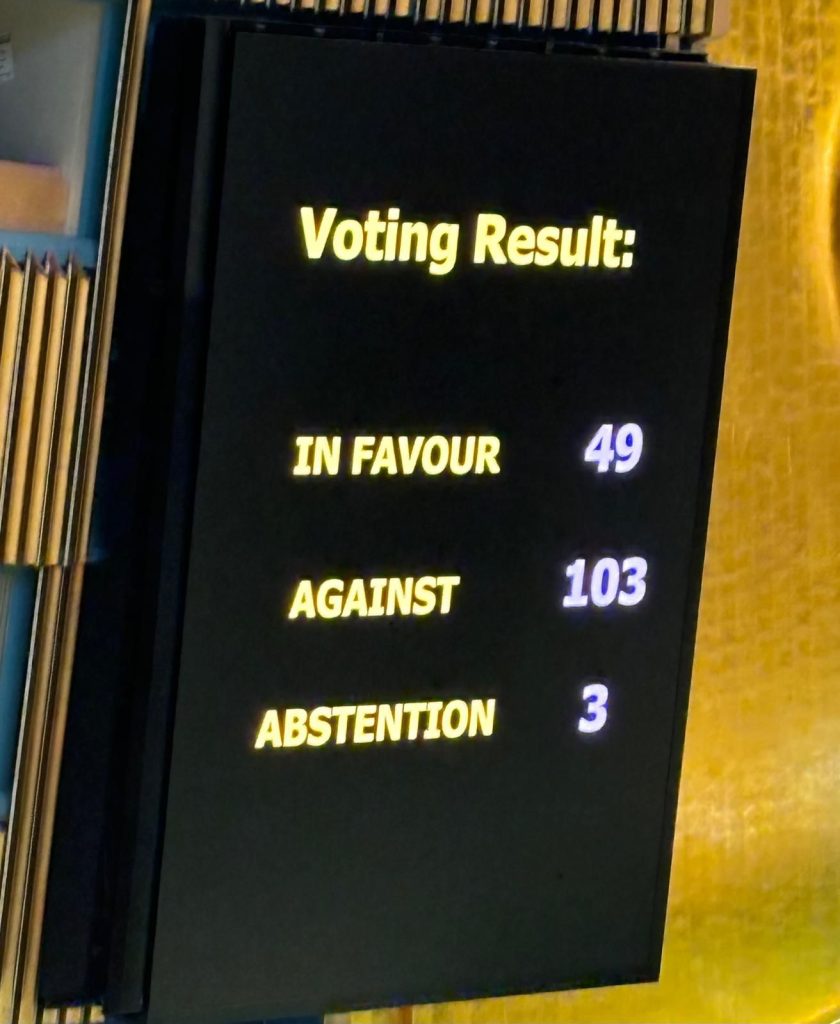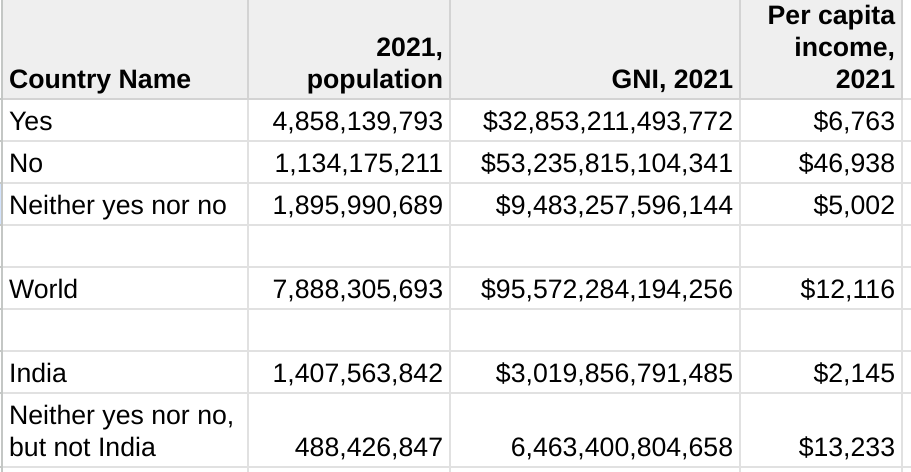Revised May 6, 2024
Against the backdrop of the tortuous negotiations among WHO Member States on technology transfer and know-how at the last mile of the pandemic agreement talks, on Wednesday, 1 May 2024, Switzerland offered a surprise amendment in a different forum, thousands of miles away, at the UN General Assembly in New York.
The New York votes concerned certain paragraphs within draft resolution A/78/L.62, entitled, “Global health and foreign policy: addressing global health challenges in the foreign policy space” that had been originally tabled on April 19, 2024, by Brazil, France, Indonesia, Norway, Senegal, South Africa, and Thailand.
Switzerland offered an amendment that would insert “on voluntary and mutually agreed terms” after “transfer of technology and know-how” in the twenty-ninth preambular paragraph.
Swiss-Amendment.n2412117-1May2024
The proposed amendment to paragraph 29 reads as follows:
PP29: Noting the discussions on innovative options to enhance the global effort towards the production and equitable distribution of medicines and other health technologies through local and regional production, welcoming the establishment of technology transfer hubs for mRNA vaccines to develop and strengthen local and regional production chains in developing countries, and emphasizing the need to enhance the manufacturing and research capacity of countries through innovation and transfer of technology and know-how [add: on voluntary and mutually agreed terms] with the support of developed countries and advance industries;
Member States then voted, and the amendment was rejected, with 103 UN members voting against the amendment, 49 voting in favor, and three abstentions (India, Mauritius, and Togo).

On 2 May, 2024, the United States called for a recorded vote on preambular paragraph 29, the same paragraph that had previously been voted on in relation to the Swiss amendment. The result of this vote reflected the diverging stances of member states, with 103 voting in favor, 48 voting against, and one abstention (India), nearly the mirror opposite of the vote on the Swiss amendment.
Vote.03L.62as.amended.PP29-2May2024
KEI compiled the voting records of countries on preambular paragraph 29 along with each country’s population and income, which is accessible here.
Member States with higher incomes tended to oppose preambular paragraph 29, with a few exceptions such as Norway, Singapore, and several Middle Eastern oil-rich states, who voted in favor of the paragraph.
Conversely, Member States with some of the lowest reported per-capita-incomes were more inclined to vote in favor of preambular paragraph 29. Among the 96 countries voting with the lowest per-capita incomes, only eight voted against the preambular paragraph. Notably, most of the lower-income Member States that opposed the preambular paragraph were either European candidate countries or countries aspiring to join the EU. The sole exception to this trend was Mozambique, which also voted against the preambular paragraph.
Overall, the voting patterns on preambular paragraph 29 closely aligned with the economic status of the countries, with those having higher incomes generally opposing the preambular paragraph, while lower-income countries were more likely to support it. According to our calculation, when using 2021 per-capita incomes, the countries who voted in favor of the preambular paragraph had a per-capita income of $6,763, whereas the countries who voted against had a per-capita income of $46,938.
The designation “neither yes nor no” (see table below) encompasses countries that either abstained from voting or did not cast a vote, including India’s abstention.
India’s population is enormous, 17.8 percent of the global population in 2021, and in the same year, the per capita income was $2,145. The remaining countries not voting had a population of 488,426,847 in 2021, and a per-capita income of $13,233.
